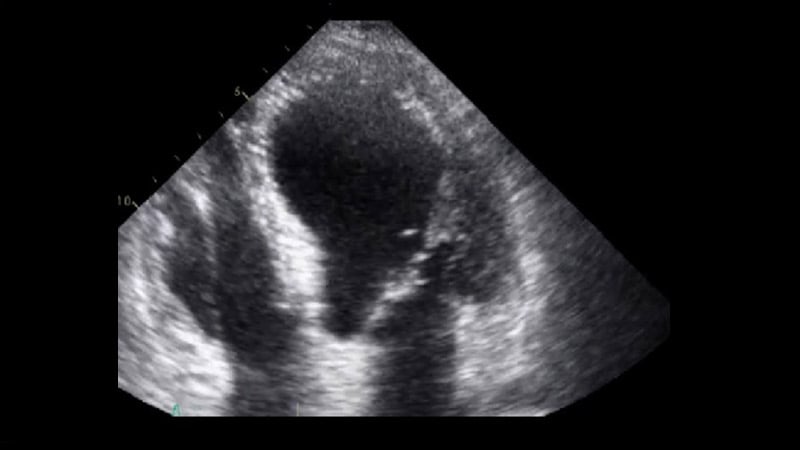Insights on Mortality in Takotsubo Syndrome
Core Concepts
Patients with Takotsubo Syndrome have higher mortality rates compared to the general population and similar rates to those with myocardial infarction.
Abstract
TOPLINE:
Mortality in Takotsubo Syndrome (TTS) is higher than the general population and comparable to myocardial infarction (MI).
Medication use rates are similar for TTS and MI despite no specific clinical trials or recommendations.
METHODOLOGY:
Study included 620 Scottish patients with TTS, predominantly middle-aged women.
Analysis included control groups from the general population and patients with acute MI.
Data extracted on medication prescribing, causes of death, and major causes of death clustered into 17 groups.
TAKEAWAY:
All-cause mortality higher in TTS than the general population and slightly lower than in MI.
Cardiovascular causes, especially heart failure, most strongly associated with TTS.
Prescription rates of medications similar between TTS and MI.
IN PRACTICE:
Findings may lead to further exploration of mechanisms and treatments for TTS.
Importance of research for better management of TTS patients highlighted.
SOURCE:
Research led by Amelia E. Rudd, published in the Journal of the College of Cardiology.
LIMITATIONS:
Complete alignment of clinical characteristics between TTS and MI patients not feasible.
TTS still relatively unfamiliar to clinicians during the study.
Causality cannot be assumed due to nonrandomized data.
DISCLOSURES:
Rudd had no conflicts of interest. Study author Dana K. Dawson received awards for the study.
New Insights Into Mortality in Takotsubo Syndrome
Stats
"All-cause mortality was higher in patients with TTS than in the general population (hazard ratio [HR], 1.78; 95% CI, 1.48-2.15; P < .001) and slightly lower than in patients having MI (HR, 0.76; 95% CI, 0.62-0.94; P = .012)."
"Cardiovascular causes, particularly heart failure, being the most strongly associated with TTS (HR, 2.47; 95% CI, 1.81-3.39; P < .0001 vs general population)."
"The only cardiovascular therapy associated with lower mortality in patients with TTS was angiotensin-converting enzyme inhibitor or angiotensin receptor blocker therapy (P = .0056)."
Quotes
"These findings may help to lay the foundations for further exploration of potential mechanisms and treatments" - Authors
"The study suggests the importance of further research for more appropriate management of patients with acute and long-term TTS." - Commentary
Key Insights Distilled From
by Pauline Ande... at www.medscape.com 01-16-2024
https://www.medscape.com/viewarticle/new-insights-mortality-takotsubo-syndrome-2024a10000z0
Deeper Inquiries
What are the potential implications of these findings on the current treatment strategies for TTS patients?
The findings of the study indicating higher mortality rates in patients with Takotsubo Syndrome (TTS) compared to the general population and similar rates to those with myocardial infarction (MI) have significant implications for current treatment strategies. The study highlighted that cardiovascular causes, particularly heart failure, were strongly associated with TTS mortality. This suggests that focusing on cardiovascular management, especially heart failure prevention and treatment, could be crucial in improving outcomes for TTS patients. Additionally, the identification of angiotensin-converting enzyme inhibitor or angiotensin receptor blocker therapy as the only cardiovascular treatment associated with lower mortality in TTS patients underscores the importance of targeted medication strategies. These findings may prompt healthcare providers to consider more aggressive cardiovascular management in TTS patients to potentially reduce mortality rates.
How can the medical community improve the early diagnosis and management of TTS to reduce mortality rates?
To enhance the early diagnosis and management of Takotsubo Syndrome (TTS) and subsequently reduce mortality rates, several strategies can be implemented. Firstly, increasing awareness among healthcare professionals about TTS as an increasingly recognized and potentially fatal condition is crucial. Education and training programs can help clinicians better identify TTS, especially in patients presenting with symptoms mimicking myocardial infarction. Implementing specific diagnostic criteria and guidelines for TTS can aid in its prompt recognition and differentiation from other cardiac conditions. Additionally, utilizing advanced imaging techniques such as echocardiography and cardiac MRI can provide valuable insights for accurate TTS diagnosis and monitoring. Collaborative efforts between cardiologists, emergency physicians, and other specialists can ensure a multidisciplinary approach to TTS management, leading to more effective and timely interventions to improve patient outcomes.
How might the underdiagnosis of TTS impact the overall understanding of cardiovascular diseases?
The underdiagnosis of Takotsubo Syndrome (TTS) can have significant implications for the overall understanding of cardiovascular diseases. As TTS was relatively unfamiliar to clinicians and underdiagnosed during the study period, there is a risk of misinterpreting TTS cases as other cardiac conditions like myocardial infarction. This underrecognition may lead to inappropriate treatments and management strategies, potentially exacerbating patient outcomes. Furthermore, the lack of accurate diagnosis and documentation of TTS cases can skew epidemiological data on cardiovascular diseases, affecting the overall assessment of disease prevalence and mortality rates. Improved awareness, education, and diagnostic criteria for TTS are essential not only for enhancing patient care but also for advancing the understanding of the diverse spectrum of cardiovascular diseases and their impact on public health.
0
More on Healthcare
